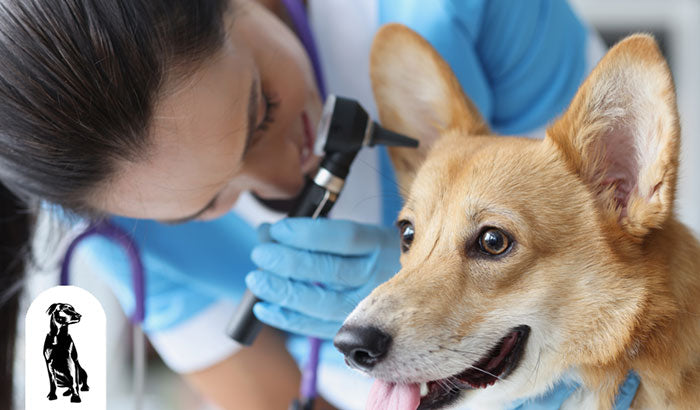
Dog anxiety is a prominent issue among pups who have been through traumatic or abusive situations. Anxiety isn’t exclusive to humans, and it can be more challenging to address this condition if your dog suffers from it because they can’t communicate those feelings to us in an understandable way most of the time.
Dog anxiety can come from various reasons, including abandonment, abuse, neglect, separation, traveling, loud noises, and being around other pets. Narrowing down the exact cause can be difficult, but there are things you can try that might help you soothe your dog's anxiety, no matter the cause.
In this article, we’ll cover some of the most common causes of dog anxiety and dog anxiety treatments you can use to help your pup live a more relaxed life.
Anxiety Caused by Being a Shelter/Rescue Dog
Dogs that have spent an extended period in a shelter may suffer from memories of abandonment, neglect, and abuse by previous owners. These dogs may have also experienced traumatic events before being dropped off or rescued, making it hard for them to shake off feelings of anxiousness.
The unpredictability that these pups have dealt with can make it hard for them to trust a new owner or anyone in general, so if you’re adopting a shelter dog, be prepared to take things slow and show them the patience they need.
Separation Anxiety
Very few dogs like to be left alone for long periods. Separation anxiety is a form of anxiety that can cause dog anxiety symptoms such as destructive behavior, excessive barking and howling, and excessive accidents inside.
If your dog needs to be left alone for most of the day, you can take steps to help with separation anxiety. Take your pup out for a walk before you go, leave a stuffed treat for them to enjoy while you’re away, and try not to make a big deal about leaving or coming home.
It would be best if you also aimed to spend quality time with them when you get home, whether taking them out for a walk or playing some of their favorite games with them, like fetch and tug-of-war.
These steps can help reduce your pup’s anxiousness. Still, if they persist after you’ve exhausted your resources, you should speak to your veterinarian about screening your pup for generalized anxiety disorder.
Generalized Anxiety Disorder
Generalized anxiety disorder can be frustrating because it usually means that there is no direct cause for your dog’s anxiety. If you adopted your dog from a shelter, there might have been a primary event that they went through that could have kickstarted their anxious behavior.
Generalized anxiety disorder goes unrecognized in most dogs because of how common it is. Another thing to remember about this disorder is that dog anxiety symptoms can be subtle or highly noticeable.
The best way to soothe your dog's anxiety is by developing a consistent routine that allows them to get the exercise they need, along with the mental stimulation that will keep them from developing other bad habits.
Some dogs naturally prone to generalized anxiety disorder include the following:
- German Shepherds
- Australian Shepherds
- Border Collies
- Vizslas
- Cocker Spaniels
- Shorthair Spaniels
- Bichon Frise
- King Charles Spaniels
- Greyhounds
- Toy Breeds
- Havanese Dogs
This doesn’t mean your dog will or has developed generalized anxiety because of their breed, but note that it is possible.
Social Anxiety in Dogs
Aggression is one of the leading indicators of social anxiety in dogs. In dogs experiencing social anxiety, dog anxiety symptoms include barking, lunging, snarling, and aggression toward other pets and even people.
Taking your pup to a trainer is an effective way of correcting this behavior, but a veterinarian should address increased aggression.
Anxiety Caused by Sickness
When your pup gets sick, they can begin to develop feelings of anxiety. It can be obvious to tell if your dog is sick most of the time, but there may be instances when their illness isn’t apparent. Here are some common causes of illness-induced anxiety that you can look out for:
- Hypothyroidism: If your pup’s thyroid gland doesn’t produce enough hormones, you may notice dog anxiety symptoms such as weight gain, hair loss, and lethargy.
- Thyrotoxicosis, or Grave’s Disease, is a rare autoimmune disorder that affects a dog’s thyroid gland.
- Encephalitis: This refers to brain tissue swelling and can cause anxiety, aggression, seizures, and in severe cases, a coma.
- Pre-diabetes: You can tell when your pup may be suffering from pre-diabetes if your dog’s anxiety is accompanied by weight gain, excessive thirst, and cataracts.
- Hearing and vision loss: your pup may become more anxious after losing one of their senses.
While these are some ways to detect possible illness in your dog, you should always get the opinion of a professional veterinarian. A vet can run tests that can more accurately pinpoint what your pup may be dealing with, which makes finding an effective solution much more manageable.
Anxiety Caused by Inactivity
This type of anxiety is common among larger dog breeds that need plenty of exercise. If you own a larger dog and don’t go for frequent walks or let them play outdoors, they may become bored and begin to develop anxiety from being inside all the time.
This can be difficult if you live in an apartment or have a rigorous work schedule, but giving your dog the outdoor time they need can help avoid aggressive, timid, anxious, and compulsive behavior.
Take Your Dog on an Adventure with Plush Paws
Taking your dog on regular adventures and keeping them physically and mentally stimulated is the best way to soothe and avoid dog anxiety symptoms. If you’re ready to take the next step in ensuring your pup’s mental well-being, check out our premium car seat covers at Plush Paws.
Our covers will keep your seats safe and your best friend comfortable while you take them to their favorite park, trail, or pet store for a treat run. Visit our shop or contact us today if you have any questions!
